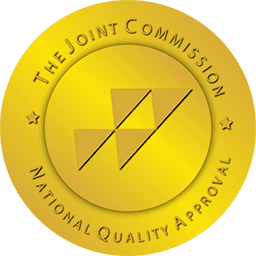PTSD, or post-traumatic stress disorder, is a relatively common psychological condition that develops due to intense trauma or stress. It is often the cause of uncontrollable, intrusive thought patterns, anxiety or panic, flashbacks, and nightmares or insomnia.
PTSD also creates short-term memory loss and long-term effects on the individual’s mental health. Treating post-traumatic stress disorder is crucial since the symptoms can worsen over time, leading to higher degrees of impairment and disruption to the sufferer’s life.
Understanding PTSD
The first step to helping someone with post-traumatic stress disorder is to understand PTSD as thoroughly as possible, so you can have some insight into how your loved one feels on a conscious and unconscious level. One of the most serious side effects of developing PTSD is that the individual living with the disorder frequently feels helpless and has intense fear or anxiety.
This will often mean that they will be hypervigilant and restless because their brain is always fearful of a repeat of the trauma. This is common in people with PTSD, and the lack of sleep exacerbates the issue, clouding their judgment and decision-making abilities.
How to Recognize PTSD
According to the National Institute of Mental Health, about 7 or 8 out of every 100 people will experience PTSD at some point in their lives.
This means it’s highly likely someone in your life is already living with the consequences of severe trauma. The most effective way to recognize post-traumatic stress disorder in someone close to you without undergoing a doctor or psychotherapist visit is to look for signs of avoidance, hyperarousal, or emotional instability.
Avoidance is when the individual will go to great lengths to avoid triggers that remind them of the trauma. Hyperarousal is also common and is when they always seem on “high alert,” resulting from their brain being constantly wary of repeated traumatic events. Emotional instability will be common and can result in sudden outbursts of sadness, anger, or even aggression.
Talking to someone with PTSD
When you approach your loved one to talk about post-traumatic stress disorder, stay positive and listen to them. While you may have concerns you want to voice and tell them how much you feel like professional help could benefit them, you don’t want the encounter to come across as an attack. You want to get your concerns across, but you don’t want to argue with them about how they feel.
Ensure that you keep an open mind, don’t interrupt, and don’t invalidate their feelings. Only people with post-traumatic stress disorder can truly understand what it’s like, but they should also hear your side. PTSD is a condition that affects the individual and all those close to them.
How to help someone with PTSD
You can potentially help someone with post-traumatic stress disorder in many ways, and you’ve already taken the first step of learning about the disorder. While it may be challenging or even difficult to live with someone with PTSD, being there to support them is one of the most significant things you can do to help them cope. Keeping your relationship with them as happy and healthy as possible will ensure a strong foundation for recovery and healing.
Actionable steps to take when helping someone with PTSD
Offer & help build social support
One of the biggest consequences of post-traumatic stress disorder is social isolation. This may lead to more frequent and sustained isolation from not only friends but family, which can worsen the symptoms of PTSD. Being there to help them with social support, reliability, and trustworthiness can help reassure them.
Practice self-care
As the saying goes, “you cannot pour from an empty cup,” which means that for you to be the most effective support person possible, you must practice self-care. This means taking time for yourself; sometimes, it may mean setting boundaries to keep yourself healthy.
Listen intently & lovingly
Being a good listener is critical to helping someone with post-traumatic stress disorder heal. Don’t force the conversations, but if and when they open up, don’t argue or interrupt; be there to listen. Active listening techniques can be invaluable here.
Rebuild trust and create a sense of safety
Trauma causes significant changes to how the brain perceives the world, and it can instill constant fear or anxiety in someone with PTSD. Anything you can do to help them regain trust in their surroundings can help them recover.
Anticipate and manage triggers
Triggers will cause their fight-or-flight response to activate again and may bring about flashbacks or emotional instability. Learn about your loved one’s triggers, and help them find ways to either cope with them or avoid them in healthy ways. Avoidance and avoiding triggers are different, so be sure you’re helping them heal, not helping them deepen their aversions.
Deal with Anger and Volatility
There will undoubtedly be emotional challenges that stem from the emotional impulse management effects of PTSD. This can manifest as outbursts, insomnia, or even a mechanism to mask other, deeper emotions like fear or helplessness. Try to be their calm place, give them plenty of space when needed, and ensure they always know they can come to you with their needs and concerns.
Support Treatment
There are endless ways that someone with PTSD can seek treatment, and as long as they’re healthy, support them. Whether it’s conventional individual, couples, group therapy sessions, or something less traditional, be there for them. This may mean attending support groups with them or practicing mindfulness, yoga, or simple meditation alongside them.
Where to get support for someone with PTSD
PTSD cannot be treated by simply researching and talking it through, and there will be a point when the individual with PTSD needs to seek mental health treatment to address their trauma. Contact a professional today to find out how to give your loved one additional healthy techniques to cope with PTSD and start down the path to healing.
References
- Mann SK, Marwaha R. Posttraumatic Stress Disorder. In: StatPearls. StatPearls Publishing; 2022. Accessed January 4, 2023. http://www.ncbi.nlm.nih.gov/books/NBK559129/
- Post-Traumatic Stress Disorder. National Institute of Mental Health (NIMH). Published May 2022. Accessed January 4, 2023. https://www.nimh.nih.gov/health/topics/post-traumatic-stress-disorder-ptsd
- Avoidance. NeuRA Library. Published August 2021. Accessed January 4, 2023. https://library.neura.edu.au/ptsd-library/signs-and-symptoms-ptsd-library/general-signs-and-symptoms-signs-and-symptoms-ptsd-library/avoidance/
- Hyperarousal. NeuRA Library. Published August 2021. Accessed January 4, 2023. https://library.neura.edu.au/ptsd-library/signs-and-symptoms-ptsd-library/general-signs-and-symptoms-signs-and-symptoms-ptsd-library/hyperarousal/
- Anger and aggression. NeuRA Library. Published August 2021. Accessed January 4, 2023. https://library.neura.edu.au/ptsd-library/signs-and-symptoms-ptsd-library/general-signs-and-symptoms-signs-and-symptoms-ptsd-library/anger-and-aggression/













